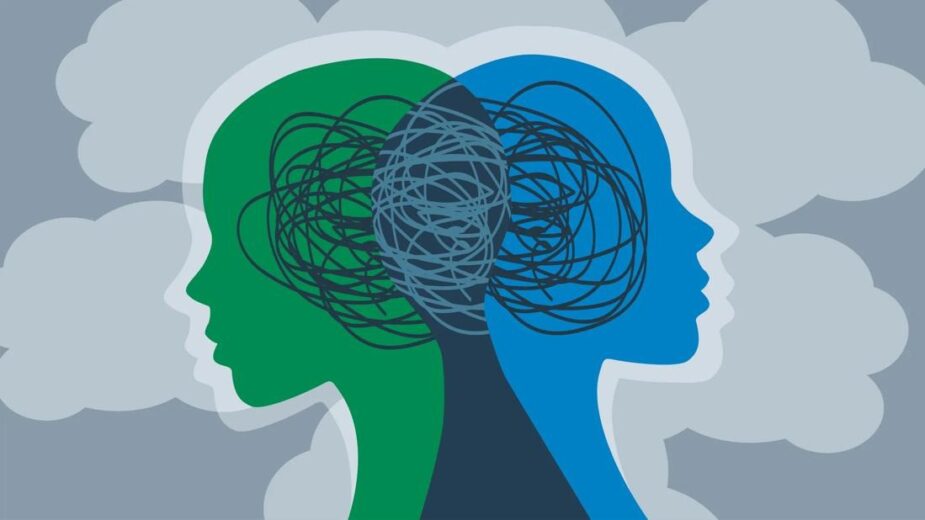It is always intriguing to see how mental health practitioners, as well as the general population, understand the intricacies of human behaviour. When it comes to antisocial personality traits, the most often debated topic is psychopath vs sociopath tendencies. Both words are used interchangeably very often, but they describe subtle differences in behaviour, emotional regulation, and interpersonal relationships. It is a question on everyone’s mind whether one who exhibits these tendencies can really change. This article discusses the differences between these two conditions, their treatment options, and whether or not positive transformation is possible.
The Difference Between Psychopath vs Sociopath
While both fit into the larger umbrella of antisocial personality disorder, each has significant differences. A psychopath might be characterised as calculating, manipulative, and affectively unemotional. They can be extremely intelligent, charming, and adept at obscuring their actual motives. A sociopath tends to be more impulsive, given to bursts of emotion, and less capable of sustaining long-term stability in relationships or commitments.
These distinctions form the way each person engages with society. Psychopaths can operate within organised settings, even thriving professionally at times, but sociopaths generally will have difficulty being stable. This produces highly distinct patterns in relationships, occupations, and even engagement with treatments. It’s essential to understand these differences when questioning whether either group can ever change under therapy or intervention.
Early Influences and Development
Childhood surroundings, heredity, and early abuse are usually to blame for antisocial characteristics. Most professionals feel that psychopaths are more strongly affected by biological tendencies, whereas external events like abuse, neglect, or inconsistent parenting form sociopaths. Identifying these differences in development is significant because it determines how treatment programs are created by therapists. For example, if biological factors predominate, therapy might involve behavioural conditioning with rules and medication. If environmental factors have a greater impact, trauma-informed care and attachment-based therapy may be more beneficial.
Challenges in Treating Antisocial Personality Traits
Motivation is one of the largest obstacles to treatment. People with these characteristics do not tend to pursue therapy independently. Psychopaths, because of their manipulative personalities, will seek treatment for self-interest instead of an interest in reform. Sociopaths, with their unstable emotional lives, will begin treatment but have difficulty being consistent and committed.
Therapists also have the task of separating genuine improvement from superficial compliance. The fact that psychopaths can simulate emotions makes it hard to decide whether genuine empathy is indeed being learned. Likewise, sociopaths might show improvement on one front while persistent harmful conduct remains on another. All these difficulties call for painstaking evaluation, organised programs, and prolonged intervention strategies.
The Role of Cognitive Behavioral Therapy
Cognitive Behavioural Therapy (CBT) has demonstrated potential in resolving maladaptive thought processes and behaviour. In both psychopaths and sociopaths, CBT aids in revealing distorted thinking and provides useful tools for impulse management and harmful behaviour reduction. When applied to psychopath vs sociopath, CBT must be specially adapted. Manipulative thinking must be challenged through exercises for psychopaths, but sociopaths tend to require emotion regulation and impulsivity control strategies.
The process is gradual and requires persistence from both therapist and client. Success depends heavily on the willingness of the individual to engage honestly in self-reflection, which can be particularly challenging for those with deeply ingrained antisocial patterns.
Group Therapy and Social Reintegration
Another possible treatment route is group therapy. Talking within the confines of a guided group offers a contained atmosphere for feedback and responsibility. For sociopaths, with their tendency to have no stable relationships, group therapy can foster more positive patterns of interaction and conflict management. For psychopaths, group therapy allows manipulative behaviour to show sooner because peers and facilitators will identify inconsistencies that a one-on-one therapist may not pick up immediately.
Reintegration into society is also an important concern. The development of new relationship skills, understanding of empathy, and accountability is necessary for change. This doesn’t mean removing the tendencies entirely, but creating healthier means of coping with them in society.
The Role of Medication
Medication does not treat antisocial personality tendencies, but it can control associated problems like anxiety, depression, or aggression. Stabilising these symptoms can provide a more conducive environment for therapy. For instance, a sociopath with extreme mood swings can be helped with mood stabilisers, which then enable them to become more involved in therapy. Psychopaths might respond less to drugs because of the embedded nature of their disease, but treating secondary symptoms can still be useful in terms of treatment planning.
Can True Change Happen?
The most important question is still: do psychopaths and sociopaths ever change? The answer is complicated. Full change might be an exception, but change and control of behaviours can happen. Some evidence indicates that sociopaths, as the environmental basis of their illness, have a better shot at responding to treatment than psychopaths. Their impulsivity and emotional reactivity, though difficult, also suggest a potential for attachment and vulnerability that therapy can cultivate.
Psychopaths, with their impoverished empathy and calculating detachment, tend to present a more difficult challenge. But there are reported instances of people learning to control their actions, conform to social norms, and create ordered, stable lives. Change is not necessarily about learning to feel deep empathy, but it can be about diminishing destructive actions and incorporating tactics for healthier engagement.
The Importance of Early Intervention
Intervention at an early stage, particularly in adolescence, holds the greatest potential for success. When the indicators of conduct disorder or extreme behavioural problems manifest, psychotherapy can realign lines of development. Early intervention concentrates on developing emotional control, sympathy, and good attachments prior to the development of antisocial behaviours. Schools, families, and community programs are responsible for delivering supportive environments that avoid the progression to more extreme patterns in adulthood.
Support Systems and Rehabilitation
Support systems play a crucial role in maintaining change. For both sociopaths and psychopaths, relationships with family members, peer groups, and therapists provide encouragement and accountability. Rehabilitation interventions focusing on community reintegration, vocational training, and a structured environment can diminish relapse to offensive behaviour.
Continued support also involves education for family members. Families that are educated regarding the essence of antisocial personality traits are better able to establish boundaries, prevent enabling of self-destructive behaviour, and promote persistent treatment engagement.
Shifting Public Perception
A final impediment to change is public opinion. People with antisocial behaviour tend to be stereotyped as being untreatable or unchangeable. Although we must be aware of the dangers these actions may carry, we must be careful not to rule out the potential for improvement. To recognise that growth can be achieved, even though a complete overhaul may not be probable, we allow ourselves to institute more humane and effective treatment options.
Ethical Considerations in Treatment
Treatment of people who exhibit manipulative or abusive behaviours demands firm ethical boundaries. Therapists have to walk the fine line between the desire to create change and the necessity of protecting others from possible damage. This means establishing strict boundaries, upholding clear therapeutic objectives, and exercising consistent accountability. Ethical treatment recognises the humanness of the client while ensuring the safety of others.
The Path Forward
Though the psychopath vs sociopath debate will rage on, the possibility of change cannot be ruled out. Both afflictions are serious, but with guided therapy, early intervention, and robust support systems, meaningful change is possible. Change might not be an utter personality transformation, but it can come in the form of learning responsibility, the development of healthier habits, and the lessening of destructive tendencies.
Finally, the issue of change is not one of perfecting others but possibility. Someone with these characteristics might never be fully empathetic, but they can learn to be functional in society with less damage to self and others. Recognising these possibilities fosters hope and improvement within mental health care.
In conclusion, though change is challenging, it is possible. Therapies like cognitive behavioural therapy, group therapy, medication, and early intervention offer possibilities for improvement. Support from communities and families is just as crucial. With an approach that tackles these challenges with empathy and dedication, mental health professionals can assist individuals towards healthier trends. Clearmind Treatment is keen on the utilisation of evidence-based measures that combine hope and realistic expectations for individuals combating these issues.




